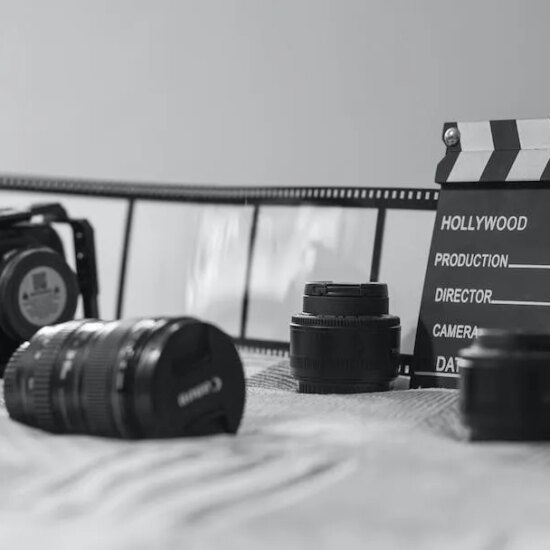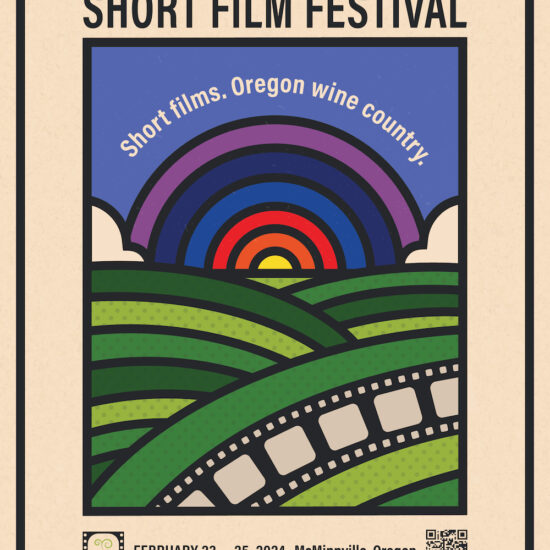
It may come as no surprise when I tell you that my mother used to call filmmakers the biggest fibbers and fakers out there. I guess she saw through all the shamanic tricks and sleights of hands that filmmakers use to get their stories out there.
There is more. Filmmakers need to know how to get people to click on stuff on the internet. This helps them get people to watch their trailers, their webseries, their crowdfunding campaigns and hopefully buy tickets to their festival screenings.
Two things happened to me this week:
Firstly I was chatting to one of our amazing postgraduate film degree students in what I suppose other film schools would call a tutorial. He had just been promoted to Head of Creative at a major London ad agency and he was telling me that one of his clients, the Natural History Museum was looking for the ‘story of the museum’ in order to attract even more visitors. He claims that all ad agencies talk about these days is ‘story’.
I then read a fascinating article by Harvard grad student Lanya Olmsted in which she outlines four of the tools used by professional digital marketing experts to get a fantastic response. I then wondered if I could jam these two ideas together and came up with:
According to Lanya studying Freudian theories can better explain why we engage with certain types of headlines in social media.
1. Cognitive Dissonance
One psychological theory is called cognitive dissonance. When you have a social media headline that challenges beliefs, you are more likely to get people to engage with your message. It’s because you have made them feel uncomfortable.
For example you might say something like:
New film distribution techniques everyone overlooks. [weblink back to your blog]
When people see this they feel uncomfortable because they see themselves as knowing everything about film distribution, so they click on the link to try to restore a balance inside themselves.
Here’s the learning: If you really and truly know who your audience is, challenge their assumptions and you will more readily be able to get them engaged with your ‘story’ – be it a brand message like the Natural History Museum or a narrative fiction.
2. Self-perception theory
This theory is based on the assumption that people observe their own actions and draw conclusions about their behaviour from it.
For example you might say something like:
Storytelling will be the most important job skill of the next five years. http://hub.am/1pnU0R1/
Someone who writes every day will come to believe that they are a screenwriter and storyteller. They will continue to act in a way that re-enforces this belief in themselves. People will click on a headline that matches their perception of self.
Banks use this a lot. We often see banks advertising a homeowners’ only loan and showing a happy family in front of a solid brick house and well trimmed lawns.
Here’s the learning: Create messages that mirror what your audience thinks of themselves. Remember as a filmmaker you have three different audiences: the people in the cinema, the cast and crew working on the film and firstly and most importantly the investors and funders of your film.
3) Extrinsic Motivation
Do you remember getting something useful either unexpectedly or by performing some small action like filling in a customer survey? This is called extrinsic motivation – when we go out of our way to do something for which we get an award.
It is surprising how little an award can be to get people to do something for you.
For example you might say something like:
Filmmaker? Would you like a free copy of Christopher Nolan’s first screenplay? Email [email protected]
People love to get free stuff and they feel it’s like a reward for good behaviour or being particularly bright. This message – a perfect giveaway for aspiring filmmakers and screenwriters drew hundreds and hundreds of exactly the right type of people we try so hard to attract to Raindance. We decided to do this and offer a fairly significant and hard to find reward for sending us their email addresses.
Here’s the learning: Offer valuable information. Be clear what the value is.
4) Norming
When you construct standards for behavior you expect people to follow it’s called ‘norming’. As a filmmaker or storyteller (there I go using the storyteller word again) you can create new standards for your target audience, or reinforce norms.
For example you might tweet something like:
10 Ways To Make Distributors Totally Hate Your Guts
Why does this work? Peer and colleague pressure is real. If a tweet brings attention to “10 ways to make distributors totally hate your guts,” people want to be part of the “good filmmaker” collective that doesn’t take bad advice. They will likely click on the link to learn more about what they should really be doing.
Here’s the learning: People can’t resist free advice about what they should be doing. They love to see what the norms are for specific fields ie: filmmaking, and will readily engage with you to see what they should be doing.
Read Lanya’s article here along with some of the fascinating and informative comments.
Here’s my challenge to you (and to Lanya if she can hear me): aren’t we all storytellers trying to get people to look at our wares or hire our skills? Wouldn’t these 4 key points Lanya illustrated be useful for screenwriters too?
What theories have you tried to get people to engage with you on your social media platforms?
Do you agree with Secret Psychological Tools Filmmakers Use?
Please share them in the comments box below.
Did you know?
- Raindance members save 20% on filmmaking courses?
You can join online >HERE< and access freebies and discounts immediately - Our open courses are FREE for our HND, top-up BA and postgraduate/MA/ students
- You can book a free 1-1 consultation about our full-time degree filmmaking courses HERE
- The Raindance Guarantee: If any filmmaking course fails to meet your expectations, let us know at the break and we will make a full, 100% no-questions-asked refund
- We don’t teach ‘filmmaking’ at Raindance. At Raindance we make filmmakers.














